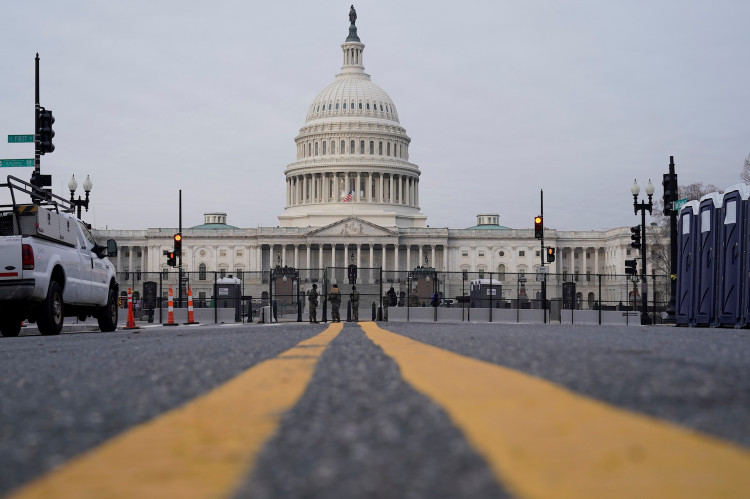House and Senate leaders have unveiled a significant $1.59 trillion spending agreement for the 2024 fiscal year. House Speaker Mike Johnson and Senate Majority Leader Chuck Schumer confirmed the bipartisan deal that allocates $886 billion for defense and $704 billion for non-defense spending.
This agreement marks a critical first step towards ensuring government operations continue seamlessly beyond the looming deadlines of January 19 and February 2.
Despite this progress, substantial challenges lie ahead as Congress must now navigate a complex political landscape to finalize funding bills or enact a stopgap resolution. One significant hurdle is the conservative demand to use the funding bill as leverage for stricter immigration and border security measures.
As Speaker Johnson articulated in a letter to his Republican colleagues, "We have secured hard-fought concessions...and allow the Appropriations Committee to finally begin negotiating and completing the twelve annual appropriations bills." These concessions include significant cuts to the IRS and Biden Administration's COVID-era funds.
On the other side of the aisle, Senate Majority Leader Schumer, alongside House Minority Leader Hakeem Jeffries, emphasized the importance of the agreement in protecting key domestic priorities from "the draconian cuts sought by right-wing extremists." They stated, "It will also allow us to keep the investments for hardworking American families secured by the legislative achievements of President Biden and Congressional Democrats."
President Joe Biden also acknowledged the bipartisan effort, stating, "The bipartisan funding framework congressional leaders have reached moves us one step closer to preventing a needless government shutdown and protecting important national priorities."
However, the path to averting a shutdown is fraught with potential conflicts. Speaker Johnson has already acknowledged that the funding levels might not satisfy everyone, emphasizing that the deal is "the most favorable budget agreement Republicans have achieved in over a decade."
Meanwhile, White House budget director Shalanda Young warns of potential revolts within the GOP ranks, which could complicate endgame negotiations and increase the odds of a funding lapse.
As the deadlines rapidly approach, congressional leaders and the White House face the daunting task of resolving these policy disputes and rallying support for the funding agreement. The coming weeks will be critical in determining whether this bipartisan deal can indeed translate into effective legislation that ensures the continuity of government operations and addresses the concerns of all stakeholders.
As the nation watches closely, the ability of Congress to navigate these turbulent waters will be a testament to the resilience and functionality of America's legislative process.






